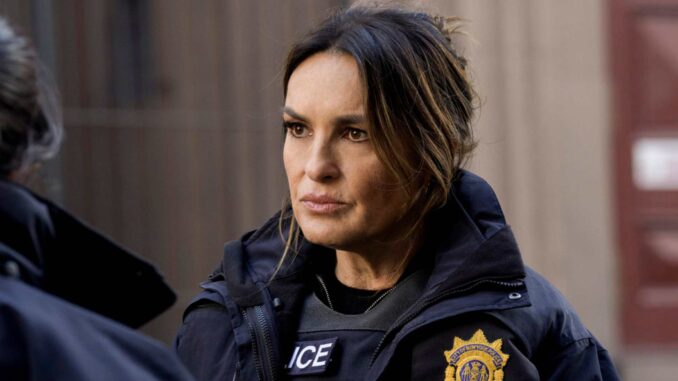
The Weight of "Almost": Why Mariska Hargitay Keeps Benson and Stabler Apart
For two decades, Olivia Benson and Elliot Stabler stood shoulder-to-shoulder, battling the horrors of New York City. Their partnership on "Law & Order: Special Victims Unit" was more than just professional; it was a crucible forging a bond of profound intimacy, a complex tapestry woven with unwavering loyalty, unspoken affection, and the shared trauma of bearing witness to the unspeakable. Fans, myself included, have long clamored for them to transcend the platonic, yearning for the "Bensler" romance that felt inevitable. Yet, Mariska Hargitay, the woman who embodies Olivia Benson, has consistently resisted the siren song of romantic resolution, subtly and not-so-subtly suggesting that a Benson and Stabler coupling, especially anytime soon, would be a disservice to both characters and their richly layered history. Her stance isn't just an actor's creative prerogative; it speaks to a deeper understanding of character arc, the enduring power of unspoken connection, and the complex reality of healing from trauma.
Hargitay’s reluctance stems, in part, from a profound respect for Benson's individual journey. Olivia has endured a staggering amount of trauma, from her own deeply dysfunctional upbringing to the countless cases she's handled, each one a brick in a wall built around her heart. Throughout the series, we’ve witnessed her tentative steps towards healing, towards building a life beyond the squad room. Her adoption of Noah, in particular, marked a pivotal shift, forcing her to prioritize vulnerability and connection in a way she hadn’t previously allowed herself. Rushing into a romantic relationship with Stabler, especially after his abrupt departure and reappearance, risks undermining this hard-won progress. It would suggest that Benson needs a romantic partner, specifically Stabler, to complete her, a narrative that diminishes the strength and resilience she has so painstakingly cultivated. Hargitay understands that Benson’s strength lies in her self-reliance, in her unwavering commitment to justice and to the family she has chosen, not the one she was born into.
Furthermore, Stabler's own journey requires careful consideration. His sudden exit, explained by an off-screen personal crisis, and his subsequent return as the star of "Law & Order: Organized Crime" thrusts him into a completely different narrative, one equally steeped in grief and trauma. He's grappling with the loss of his wife, Kathy, navigating the treacherous world of organized crime, and attempting to reconnect with a family he left behind. Pushing him into a romantic relationship with Benson, at this stage, feels forced and opportunistic. It minimizes the complexity of his grief and his efforts to rebuild his life. More importantly, it risks turning their potential romance into a plot device, sacrificing character development for fleeting fan service. Hargitay seems to understand that a truly meaningful relationship between Benson and Stabler requires both characters to be emotionally available, secure in themselves, and ready to fully commit – a place neither character currently occupies.
Beyond individual character arcs, Hargitay’s reluctance also speaks to the enduring power of their almost relationship. The unspoken tension, the shared glances, the unwavering trust, the deep understanding that transcends words – these elements have fueled the “Bensler” phenomenon for years. There’s a potent magic in the possibility, in the constant dance of “will they, won’t they?” This magic is arguably stronger than a concrete, fulfilled romance. Sometimes, the anticipation and the unresolved yearning are more compelling than the actual consummation. To definitively pair them up risks shattering the delicate balance that has kept the relationship so captivating, potentially diminishing the impact of their bond.
Ultimately, Mariska Hargitay's perspective on the Benson and Stabler dynamic is rooted in a deep respect for the characters she has inhabited for over two decades. She understands the profound complexities of their individual journeys, the intricate layers of their relationship, and the delicate balance between what the audience wants and what the characters need. By resisting the temptation to rush into a romantic resolution, she champions a more nuanced and ultimately more satisfying narrative – one that allows both Benson and Stabler to heal, to grow, and to forge a connection that is built on a foundation of genuine understanding and mutual respect, regardless of whether it ever blossoms into something more. She reminds us that sometimes, the most powerful love stories are the ones that unfold slowly, patiently, and with a profound awareness of the weight of the past. And perhaps, when the time is right, the "almost" can finally become "always," but only when both characters are truly ready to carry that weight together.
